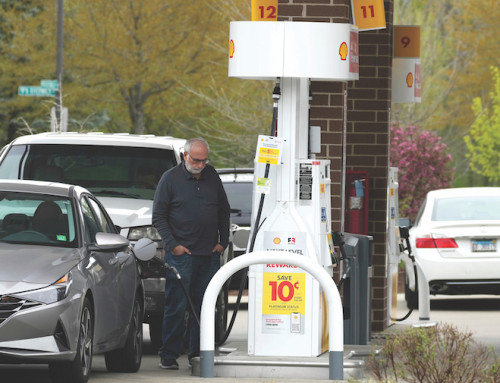A state group that represents auctioneers last week came out in support of a plan to revamp licensure of the industry.
Ohio Auctioneers Association member and licensed auctioneer Wade Baer went before a committee in the Ohio House of Representatives to offer testimony in support of a plan that would change state law regulating auctioneers.
Filed as House Bill 321, the bill most notably would eliminate the requirement for all aspiring auctioneers to complete a lengthy apprenticeship program. Rather, auctioneer applicants would be required to complete successfully a course of study in auctioneering at an approved institution.
Baer told lawmakers serving on the Agriculture and Conservation Committee that one of the bill’s goals was remove barriers from entering the business.
“HB 321 will accomplish this goal by removing the apprenticeship program,” he said. “With the changes proposed in this bill, to be a licensed auctioneer a person will need the currently required 80 hours of classroom education from an approved provider and then sit for the auction exam.”
Upon passing the exam, he added, applicants would become a fully licensed auctioneers —
a process that could take only two months.
Currently, applicants spend nearly a year in the apprentice program.
A joint sponsor of HB 321, Republican Rep. Darrell Kick of Loudonville said the current process is outdated.
“HB 321 is legislation that will make necessary updates to the license process and modernize other antiquated areas within Ohio’s auctioneer law,” the lawmaker said.
He recognized that, on paper, the current apprenticeship and exam process doesn’t seem like too great a challenge, “but for many auctioneers it is simply not attainable.
“HB 321 will do away with the outdated apprenticeship requirements. This creates a set curriculum as the standard and all new auctioneers will have the same central foundation when attaining license in Ohio.”
Baer said the second goal of the bill is to bring online auctions under state auction law, creating another layer of protection for consumers.
Kick said the bill would meet that end by adding new definitions pertaining to auction/auctioneers’ law in order to distinguish live auctions, online auctions and license requirements.
Other changes proposed in HB 321 include adding a continuing education requirement for auctioneers, removing the special auctioneer license, removing the oral exam, changing the auction firm license to a biennial renewal and a change in the handling of the auctioneer fund.
The continuing education requirement in this bill will require auctioneers to complete eight hours of continuing education every two years, coinciding with the auctioneer’s license renewal, Kick said.
“While removing barriers to entry is vital, there is also a need to protect the standard of excellence in the profession,” he said.
Of the 2,900 active auctioneer licenses in the state, the OAA represents 390 members, Baer said. The organization is committed to improving and promoting higher standards among its membership.
The bill’s other joint sponsor is Rep. Bob Young, R-Green.










